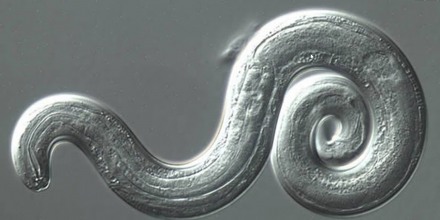Threat in Atlanta. Brain-invading parasite found in contaminated produce
27.09.2023 posted by Admin

Atlanta has recently become a hotspot for a concerning discovery – a brain-invading parasite that can enter the human body through contaminated fruits and vegetables. Independent researchers, in a study published by the Centers for Disease Control and Prevention, have identified the presence of this parasite, known as "rat lungworm" or Angiostrongylus cantonensis.
This parasitic menace was detected in wild brown rats in the vicinity of a local zoological facility in Atlanta during both 2019 and 2022. The study's authors expressed concern, stating that the presence of A. cantonensis in urban rat populations, along with its intermediate hosts in the form of gastropods and other paratenic hosts, could potentially endanger the well-being of humans and a range of animals, whether they are domestic, free-roaming, or in captivity.
Infection with this worm can occur when individuals consume either raw or undercooked snails, slugs, or unwashed produce. Additionally, certain aquatic creatures like freshwater shrimp, crabs, and frogs have been identified as carriers of the parasite's larvae.
Although the majority of A. cantonensis infections have historically been reported in Asia and the Pacific Islands, the recent findings in Atlanta are ringing alarm bells. Symptoms of infection vary, with some individuals experiencing none or only mild symptoms, eventually recovering without much issue. However, in more severe cases, this infection can lead to a rare type of meningitis known as eosinophilic meningitis, characterized by symptoms such as severe headaches, neck stiffness, fever, nausea, and vomiting.
Unfortunately, there are currently no specific treatments available for this infection. The emergence of this parasitic threat in Atlanta serves as a reminder of the importance of food safety and awareness in preventing the spread of potentially harmful pathogens.
This parasitic menace was detected in wild brown rats in the vicinity of a local zoological facility in Atlanta during both 2019 and 2022. The study's authors expressed concern, stating that the presence of A. cantonensis in urban rat populations, along with its intermediate hosts in the form of gastropods and other paratenic hosts, could potentially endanger the well-being of humans and a range of animals, whether they are domestic, free-roaming, or in captivity.
Infection with this worm can occur when individuals consume either raw or undercooked snails, slugs, or unwashed produce. Additionally, certain aquatic creatures like freshwater shrimp, crabs, and frogs have been identified as carriers of the parasite's larvae.
Although the majority of A. cantonensis infections have historically been reported in Asia and the Pacific Islands, the recent findings in Atlanta are ringing alarm bells. Symptoms of infection vary, with some individuals experiencing none or only mild symptoms, eventually recovering without much issue. However, in more severe cases, this infection can lead to a rare type of meningitis known as eosinophilic meningitis, characterized by symptoms such as severe headaches, neck stiffness, fever, nausea, and vomiting.
Unfortunately, there are currently no specific treatments available for this infection. The emergence of this parasitic threat in Atlanta serves as a reminder of the importance of food safety and awareness in preventing the spread of potentially harmful pathogens.